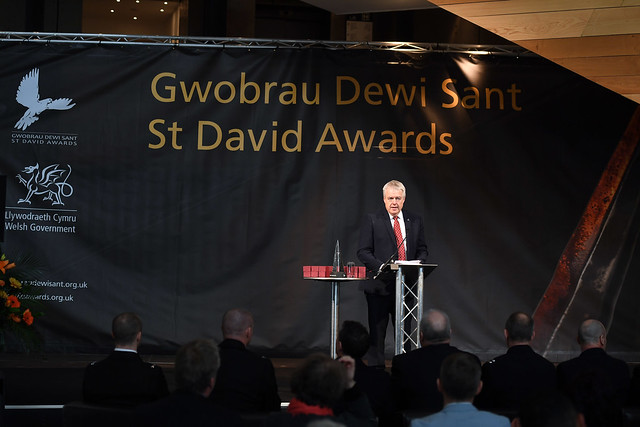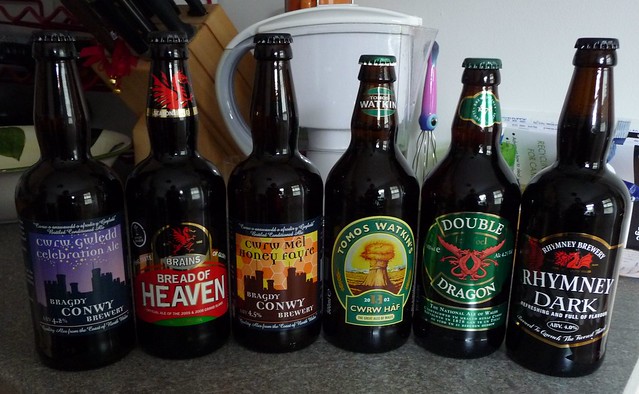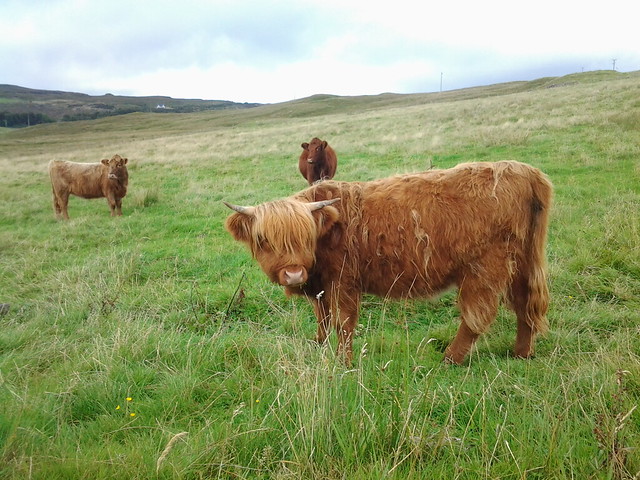Words for prize and related things in Celtic languages.
| Proto-Celtic | *uɸo-kʷrinati = reward (?) |
|---|---|
| Old Irish (Goídelc) | fochraic [ˈfoxriɡʲ] = reward, recompense terḟochraic, terfhochraic = buying, payment, reward crenaid = to buy, sell |
| Middle Irish (Gaoidhleag) | fochraic, fochricc = reward, recompense, payment, fee, hire, rent, compensation fochrach = a hireling, mercenary fochricnet = a little reward terḟochraic, terochraic, turfhochraic = reward, recompense, price, payment, present or payment made by a bridegroom to a bride or her relations |
| Irish (Gaeilge) | fochraig = reward, stipend, fee |
| Middle Welsh (Kymraec) | gwobr, gwobyr = reward, prize gwobr-wŷr = rewarder, giver or taker of bribes, briber gober, gobruy, gobrwy, gobyr = reward, payment, fee, |
| Welsh (Cymraeg) | gwobr/gwobrwy [ˈɡwɔbr] =reward, prize, desert, recompense, benefit, gift, tip, fee, hire, bribe gwobrwy = fee, fine gwobraf, gwobri, gwobru, gwobro = to reward, recompense, compensate, bribe, corrupt gwobrwr = rewarder, giver or taker of bribes, briber gwobrwyad = a rewarding, remuneration, bribery gwobrwyaf, gwobrwyo = to award a prize, reward, recompense, acknowledge gobr/gobrwy = reward, payment, fee, wages, recompense, gift, merit, desert, bribe |
| Middle Cornish (Cernewec) | gober, gobar, gobyr = recompense, reward, fee, wagews, stipend, hire goberna = to hire |
| Cornish (Kernewek) | gober = earnings, income, pay, remuneration, reward, salary, wage gober dilavur/diweythieth = unemployment benefit gober ispoyntel = minimum wage gober kleves = sick pay gober omdednans = pension gobra = to remunerate, reward gobrena = to rent gobrener, gorenores = tenant |
| Middle Breton (Brezonec) | gopr, gobr = wage, salary gopra = to bet, wager gopraer, gopraër = mercenary, tenant, lodger gopraff, gôbret = to put on payroll, give a salary, remunerate |
| Breton (Brezhoneg) | gopr = salary, wages, pay, fee gopra = to bet, wager, pay, hire goprad = salary gopradenn = recompense goprañ = to put on payroll, give a salary, remunerate |
Etymology: from Proto-Celtic from *uɸo (under) and *kʷrināti (to buy) [source]. Some words for to buy in Celtic languages come from the Proto-Celtic root *kʷrināti (to buy)
| Proto-Celtic | *dānus / *dānus = gift |
|---|---|
| Gaulish | Danomaros = personal name |
| Old Irish (Goídelc) | dán [daːn] = art, gift, poem, skill |
| Middle Irish (Gaoidhleag) | dán = gift, bestowal, endowment, present, skill, poem, song, verse, rhyme |
| Irish (Gaeilge) | dán [d̪ˠɑ̃ːn̪ˠ/d̪ˠaːn̪ˠ] = gift, offering, craft, calling, art, faculty, art of poetry, poem, lot, fate dánaigh = to give, bestow dánlann = art gallery |
| Scottish Gaelic (Gàidhlig) | dàn [daːn] = poem, song, work, effort dàn-mòr = epic poem dàn-molaidh = eulogy dàn-liriceach = lyric dàn-fhacal = epigram dànach = poetic, metric dànachd = poetry |
| Manx (Gaelg) | daan = poem daan mooar = epic daan moyllee = hymn |
| Proto-Brythonic | *dọn = gift, blessing |
| Middle Welsh (Kymraec) | daun, davn, dawn = gift, talent dawnget, dawnged = gift, benefit, favour dawngoeth, down-goeth = finely gifted or endowed dawnha = to endow with a gift or benefit, to bless donnwy, donyer, donya = to endow, bless, give, present donyauc, donyawc, doniog = gifted, endowed, talented |
| Welsh (Cymraeg) | dawn [dau̯n] = faculty, intellectual gift, talent, genius, humour, wit, grace, benefit, blessing, favour, reward, present, donation dawnaf, dawno = to fare, get on dawnaidd = gifted, endowed with or showing ability dawnedigaeth = gift, a giving or conferring, endowment, grace dawnged = gift, benefit, favour dawngoeth = finely gifted or endowed dawnhaf, dawnhau = to endow with a gift or benefit, to bless doniaf, donio = to endow, bless, give, present doniog = gifted, endowed, talented, bountiful, liberal, fortunate, advantageous doniol = gifted, talented, endowed, eloquent |
| Middle Breton (Brezonec) | donaison, donaeson, donaezon = gift, talent, donation donaesonaff = to donate donaesonner, donaesoner = donor |
| Breton (Brezhoneg) | donezon = gift, talent, donation donezoner = donor donezoniñ = to donate, present, reward, gratify |
Etymology: from Proto-Indo-European *déh₃nom (gift), from *deh₃- (to give) [source].
Words from the same PIE roots include date, donate, dose and vend in English, don (gift, talent, knack) in French, dom (talent) in Portuguese, and don (gift, present, talent, knack) in Spanish [source].
| Old Irish (Goídelc) | dúas = reward, gift |
|---|---|
| Middle Irish (Gaoidhleag) | dúas, dúáis, duais = gift, reward (esp. a recompense give to poets) dúasach = reward- or gift-bestowing, munificent, gift-bestower, rewarder dúasad = act of benefiting, rewarding frithdúas = a counter-reward, the payment made to the receiter |
| Irish (Gaeilge) | duais = gift, reward, prize, stake, prize, prize-winning duaisbhanna = prize-bond duaiseach = bountiful, generous duaiseoir = prizewinner |
| Scottish Gaelic (Gàidhlig) | duais [duəʃ] = prize, bonus, reward, purse (in sports) duais-bhrathaidh = bribe (reward for betrayal) duais-roinn = dividend duais-earrainn = dividend duais-airgid = (monetary) prize duais-barrachd = premium duaiseachadh [duəʃəxəɣ] = awarding, gratifying, gratification duaismhor duəʃ(v)ər] = liberal, bountiful |
Etymology: possibly from Proto-Indo-European *deh₃- (to give) [source].
Sources: Wiktionary, Am Faclair Beag, Online Manx Dictionary, Teanglann.ie, eDIL – Electronic Dictionary of the Irish Language, In Dúil Bélrai English – Old Irish glossary, Geiriadur Prifysgol Cymru, Gerlyver Kernewek, Gerlyvyr Cernewec, Lexicon Cornu-britannicum: A Dictionary of the Ancient Celtic Language of Cornwall, Dictionaire Favereau, TermOfis, Le dictionnaire diachronique du breton, Geriafurch, English – ProtoCeltic WordList (PDF), Etymological Dictionary Of Proto Celtic













